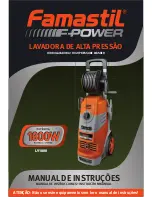
Bleach
—
Liquid chlorine type.
Only
bleach when needed.
White or colorfast, liquid chlorine type.
Non-colorfast, only non-chlorine bleach
when needed.
White or colorfast, liquid chlorine type.
Non-colorfast, only non-chlorine bleach
when needed.
White or colorfast, liquid chlorine type.
Non-colorfast, only non-chlorine
when needed.
No bleach
Seldom needed. If needed, use only
non-chlorine bleach.
No
White or colorfast, liquid chlorine type.
Only non-chlorine bleach when needed.
No bleach
No bleach
White or colorfast, liquid chlorine type.
White or colorfast,
chlorine type.
White or colorfast,
chlorine type.
No bleach
No bleach
No bleach
Instructions
If colorfast is unusually soiled, use hot water. Use maximum detergent recommended on
page 15. Use
See page 5. Use Extra Rinse, if desired.
Use maximum detergent recommended in guide on page
Small loads reduce
Use maximum detergent recommended in guide on page 15.
Use
See page 5. Use Extra Rinse, if desired.
If unusually soiled, use hot water. Use maximum detergent recommended in guide on
page For heavy or
soil on sturdy garments, use
See Page 5.
Use Extra Rinse, if desired. Small loads reduce
Wash only if recommended by the garment manufacturer. Follow instructions
carefully.
Wash in your washer only if recommended by the garment manufacturer.
Wash frequently to fluff up the down and retain the garment’s warmth. Wash separately.
Wet down gives off an odor which maybe absorbed by other garments. Odor disappears
when garment is dry. Treat heavily soiled areas with liquid detergent or paste made of water
and granular detergent. Close zippers. Wash 2 or 3 at a time or add towels to balance.
GARMENT MUST BE TUMBLE
You may prefer to use a mild type detergent. Do baby clothes separately. Pretreat spots.
Rinse diapers, nightgowns, pads and sheets after use. Keep diapers in a covered pail of cold
water and conditioning agent like
brand.
You may prefer to use a mild type detergent. Do hand-knit garments by hand or by
HANDWASH control system. See page 9.
Fill -washer, add detergent, allow to dissolve before adding blanket. Do one blanket
at a time. Pretreat heavily soiled spots with liquid detergent.
On electric blanket, sew a strong piece of cloth over plug to protect blanket and washer from
damage. Do one blanket at a time. Pretreat heavily soiled spots with
detergent.
Vacuum out loose dirt before washing.
If unusually soiled, use Permanent Press Program.
Wash only 2 or 3 rugs or mats at one time. Shake before washing to remove excess dirt.
For new “indigo blue” jeans, wash at least 3 times in very small loads with
water fill.
Jeans need ample room to move to avoid white lines at creases. May discolor plastic washer
parts. Subsequent washings will reduce discolorations, but will probably never eliminate it.
The stained parts will not discolor subsequent washing loads.
dry on FLUFF (No Heat).
Pillows are made of different
fiber, foam, polyester, natural feathers and
down. Many pillows can be machine washed, but manufacturers’ care
must be followed
If washing is recommended, check pillows for weak seams or
and mend to
prevent escape of feathers or falling.
washer, add detergent and agitate for several minutes
to dissolve detergent. Add two pillows at a time to balance load, use
water level.
t. Garment Manufacturers’ Care
r more information on care labeling, send for “What’s New About CARE
For sale by the Superintendent of Documents, U.S. Government Printing Office, Washington,
7








































